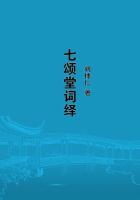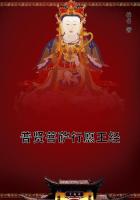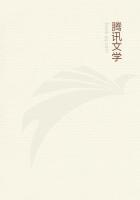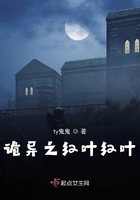The house of the McKinstrys rose, or rather stretched, itself before him, in all the lazy ungainliness of Southwestern architecture. A collection of temporary make-shifts of boards, of logs, of canvas, prematurely decayed, and in some instances abandoned for a newer erection, or degraded to mere outhouses--it presented with singular frankness the nomadic and tentative disposition of its founder. It had been repaired without being improved; its additions had seemed only to extend its primitive ugliness over a larger space. Its roofs were roughly shingled or rudely boarded and battened, and the rafters of some of its "lean-to's" were simply covered with tarred canvas. As if to settle any doubt of the impossibility of this heterogeneous mass ever taking upon itself any picturesque combination, a small building of corrugated iron, transported in sections from some remoter locality, had been set up in its centre. The McKinstry ranch had long been an eyesore to the master: even that morning he had been mutely wondering from what convolution of that hideous chrysalis the bright butterfly Cressy had emerged. It was with a renewal of this curiosity that he had just seen her flutter back to it again.
A yellow dog who had observed him hesitating in doubt where he should enter, here yawned, rose from the sunlight where he had been blinking, approached the master with languid politeness, and then turned towards the iron building as if showing him the way. Mr. Ford followed him cautiously, painfully conscious that his hypocritical canine introducer was only availing himself of an opportunity to gain ingress into the house, and was leading him as a responsible accomplice to probable exposure and disgrace. His expectation was quickly realized: a lazily querulous, feminine outcry, with the words, "Yer's that darned hound agin!" came from an adjacent room, and his exposed and abashed companion swiftly retreated past him into the road again. Mr. Ford found himself alone in a plainly-furnished sitting-room confronting the open door leading to another apartment at which the figure of a woman, preceded hastily by a thrown dishcloth, had just appeared. It was Mrs. McKinstry; her sleeves were rolled up over her red but still shapely arms, and as she stood there wiping them on her apron, with her elbows advanced, and her closed hands raised alternately in the air, there was an odd pugilistic suggestion in her attitude. It was not lessened on her sudden discovery of the master by her retreating backwards with her hands up and her elbows still well forward as if warily retiring to an imaginary "corner."
Mr. Ford at once tactfully stepped back from the doorway. "I beg your pardon," he said, delicately addressing the opposite wall, "but I found the door open and I followed the dog."
"That's just one of his pizenous tricks," responded Mrs. McKinstry dolefully from within. "On'y last week he let in a Chinaman, and in the nat'ral hustlin' that follered he managed to help himself outer the pork bar'l. There ain't no shade o' cussedness that or'nary hound ain't up to." Yet notwithstanding this ominous comparison she presently made her appearance with her sleeves turned down, her black woollen dress "tidied," and a smile of fatigued but not unkindly welcome and protection on her face.
Dusting a chair with her apron and placing it before the master, she continued maternally, "Now that you're here, set ye right down and make yourself to home. My men folks are all out o' door, but some of 'em's sure to happen in soon for suthin'; that day ain't yet created that they don't come huntin' up Mammy McKinstry every five minutes for this thing or that."
The glow of a certain hard pride burned through the careworn languor of her brown cheek. What she had said was strangely true.
This raw-boned woman before him, although scarcely middle-aged, had for years occupied a self-imposed maternal and protecting relation, not only to her husband and brothers, but to the three or four men, who as partners, or hired hands, lived at the ranch. An inherited and trained sympathy with what she called her "boys's" and her "men folk," and their needs had partly unsexed her. She was a fair type of a class not uncommon on the Southwestern frontier; women who were ruder helpmeets of their rude husbands and brothers, who had shared their privations and sufferings with surly, masculine endurance, rather than feminine patience; women who had sent their loved ones to hopeless adventure or terrible vendetta as a matter of course, or with partisan fury; who had devotedly nursed the wounded to keep alive the feud, or had received back their dead dry-eyed and revengeful. Small wonder that Cressy McKinstry had developed strangely under this ***less relationship. Looking at the mother, albeit not without a certain respect, Mr. Ford found himself contrasting her with the daughter's graceful femininity, and wondering where in Cressy's youthful contour the possibility of the grim figure before him was even now hidden.
"Hiram allowed to go over to the schoolhouse and see you this mornin'," said Mrs. McKinstry, after a pause; "but I reckon ez how he had to look up stock on the river. The cattle are that wild this time o' year, huntin' water, and hangin' round the tules, that my men are nigh worrited out o' their butes with 'em. Hank and Jim ain't been off their mustangs since sun up, and Hiram, what with partrollen' the West Boundary all night, watchin' stakes whar them low down Harrisons hev been trespassin'--hasn't put his feet to the ground in fourteen hours. Mebbee you noticed Hiram ez you kem along? Ef so, ye didn't remember what kind o' shootin' irons he had with him? I see his rifle over yon. Like ez not he'z only got his six-shooter, and them Harrisons are mean enough to lay for him at long range. But," she added, returning to the less important topic, "I s'pose Cressy came all right."
"Yes," said the master hopelessly.















